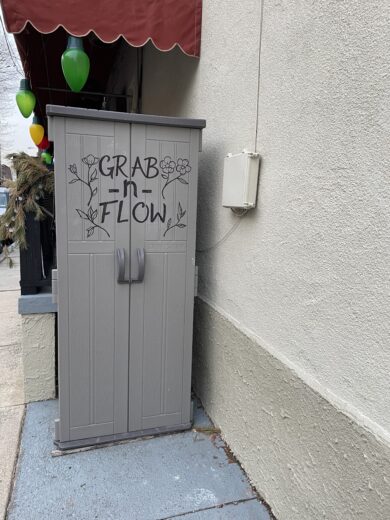People going through hard times can often rely on government assistance to put food on the table, as well as neighborhood food banks and, more recently, pop-up community fridges. But these resources seldom supply some of the most intimate, private needs: products for people who are menstruating, or have recently given birth. A new program called Grab-n-Flow is out to make these vital products accessible in a free and dignified way.
See more in the 6abc story
Shelley Aragoncillo is a clinical research coordinator in Penn Medicine’s family planning division. After learning, through her work, of the challenges that menstruating persons and new parents face in being able to afford things which many take for granted — tampons, pads, postpartum-care items, even diapers and infant formula — she set up a small shed outside of her South Philadelphia home and stocked it with all of these essentials. People can take what they need from the Grab-n-Flow shed for free, and donations are gladly accepted.
The project was awarded a $2,000 , and has also won community support. Aragoncillo is currently working with the Free Library of Philadelphia and the Maternal and Infant Health Community Action Network (CAN) to open Grab-n-Flow sheds at branches in underserved communities, and even dreams of the program being a model for a national movement. “Period poverty and period stigma are so prevalent in the world and don’t need to be,” she said in a 6abc segment in which she was featured as a “Hometown Hero” for her efforts. The Grab-n-Flow sheds represent “a discreet way for people to access resources that they need in a safe location.”
Aragoncillo’s efforts have also been featured by the TODAY Show.
CAREs grants are awarded quarterly to a variety of community-outreach programs spearheaded or supported by Penn Medicine faculty, staff, students, and trainees. Over the past decade, the initiative has granted over $750,000 to more than 750 projects in Penn Medicine’s service area.







